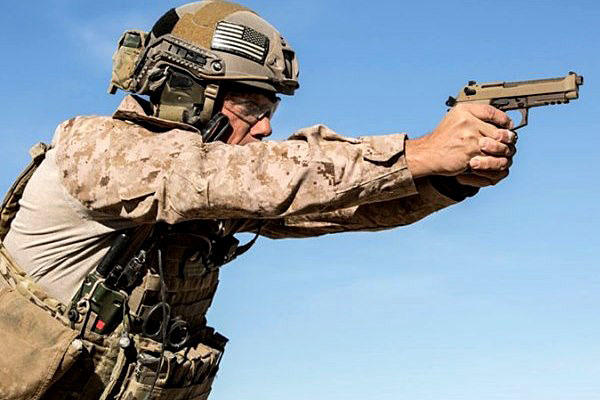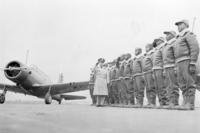U.S. Army weapons officials will not evaluate an improved version of the service's Cold War-era 9mm pistol, choosing instead to search for a more modern soldier sidearm.
In early December, Beretta USA, the maker of the U.S. military's M9 pistol for 30 years, submitted its modernized M9A3 as a possible alternative to the Army's Modular Handgun System program -- an effort to replace the M9 with a more powerful, state-of-the-art pistol.
The improved M9 features new sights, a rail for mounting lights and accessories, better ergonomics and improved reliability, Beretta USA officials said.
But by late December, it was all over for Beretta's engineering change proposal for the M9. The Army's Configuration Control Board decided not to evaluate the M9A3, according to a source familiar with the decision.
The move clears the way for the Army to release a pending request for proposal that will launch the MHS competition.
Program Executive Office Soldier would not comment for this story until Army Public Affairs has approved a statement, PEO Soldier spokesman Doug Graham said Thursday night.
The Army began working with the small arms industry on MHS in early 2013, but the joint effort has been in the works for more than five years. If successful, it would result in the Defense Department buying nearly 500,000 new pistols during a period of significant defense-spending reductions.
Current plans call for the Army to purchase more than 280,000 handguns from a single vendor, with delivery of the first new handgun systems scheduled for 2017, according to PEO Soldier officials. The Army also plans to buy approximately 7,000 sub-compact versions of the handgun.
The other military services participating in the MHS program may order an additional 212,000 systems above the Army quantity.
The effort is set to cost at least $350 million and potentially millions more if it results in the selection of a new pistol caliber.
Beretta USA officials said they have not received official notification of the Army's decision.
"Obviously, they didn't take a whole lot of time on this," said Gabriele De Plano, vice president of military marketing and sales for Beretta USA, reacting to the news of the Army's pre-Christmas decision after the M9A3's December 10 unveiling.
Army officials "didn't ask a single question; didn't ask for a single sample" for evaluation, De Plano said.
The Army maintains that the M9 design does not meet the MHS requirement. Soldiers have complained of reliability issues with the M9. One problem has to do with the M9's slide-mounted safety. During malfunction drills, the shooter often engages the lever-style safety by accident, Army weapons officials say.
The M9A3's "over-center safety lever" can be configured to act as a de-cocker, a change that eliminates the accidental safety activation, De Plano said.
As part of the joint requirement process for MHS, Army weapons officials did a "very thorough cost-benefit analysis" that supported the effort, Army weapons officials said. The old fleet of M9s is costing the Army more to replace and repair than to buy a new service pistol, officials said.
The M9A3 is not a perfect pistol, De Plano says, but the Army should at least evaluate it.
The M9 pistol can be "improved for hundreds of millions less than a new MHS pistol," De Plano said. "We can sell them this new pistol for less than the M9 pistol."
Beretta currently has an open contract for M9s that the Army awarded in September 2012 for up to 100,000 pistols. Deliveries of about 20,000 have been scheduled, leaving 80,000 that could be ordered in the M9A3 configuration for less than the cost of the current M9, De Plano said.
"Why not do a dual-path like they have done in other cases," De Plano said.
The Army was determined to do just that when it set out to search for a replacement for the M4 carbine. The service launched a competition to evaluate commercially available carbines while, at the same time, it evaluated improvements to the M4.
In the end, the service scrapped the competition and ended up adopting the M4A1 version used by special operations forces.
"They could explore this," said De Plano, by ordering 10 M9A3s. "What's the downside?"
-- Matthew Cox can be reached at Matthew.Cox@military.com.



























